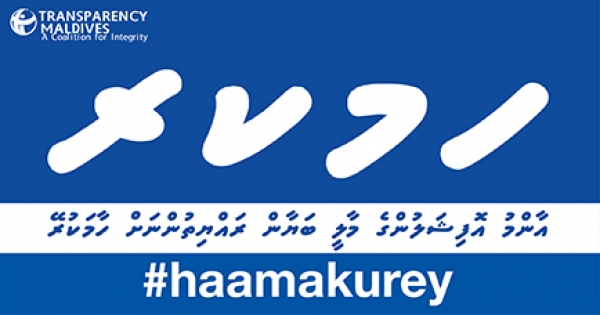
To President, Cabinet Ministers, Members of the Parliament, Members of constitutional bodies, Members of institutions, and officials of state-owned enterprises:
We write this petition to request you to declare and publicly disclose your assets in order to enhance transparency and integrity of public officials, and to increase public trust in the state and oversight bodies. We believe asset declarations are crucial in ensuring that personal interests of public officials do not conflict with their duties and responsibilities. Asset declarations also help to identify cases of illicit enrichment, so that a public official may legitimately be held accountable. Therefore, we call on you to declare your assets in accordance with the law, and to disclose your assets by publishing on the website of your respective offices.
Call on your public officials to declare and disclose their assets to the public, sign the petition! You can also send this letter to the Parliament requesting them to share the asset declaration on their website.
Why this is important
Asset declaration requires a certain category of public officials––also identified as “politically exposed persons” to describe individuals entrusted with prominent public functions––to disclose their financial and business interests. The principle goal of asset declaration is to combat corruption––in particular, illicit enrichment––and promote transparency and accountability of the governance system.
The Maldivian Constitution requires the President, Cabinet Ministers, Members of the Parliament, and Judges to annually submit their financial and business interests. Members of constitutional bodies such as the Anti-Corruption Commission, Judicial Service Commission and Elections Commission are also required to submit their asset declaration documents. However, there is no legal provision for the following officials to submit their declarations:
- Vice President
- Auditor General
- Information Commissioner
- Members of other constitutional bodies such as Human Rights Commission of the Maldives and Civil Service Commission
- Members of institutions such as Maldives Media Council, Maldives Broadcasting Commission, Police Integrity Commission, and Customs Integrity Commission
- Officials of state-owned enterprises
While this is one key weakness of the current asset declaration regime, other key weaknesses include lack of accountability and lack of transparency.
Despite the constitutional provisions that mandate some public officials to declare their assets, there are no punitive measures legally prescribed to those who violate this provision. This lack of accountability puts these public officials above the law and encourages a culture of impunity to thrive unchecked. While some officials submit the documents regularly, others do not submit at all, thus rendering the system ineffective.
Furthermore, the main objective of asset declaration is to enhance transparency and integrity of public officials and restore the trust of citizens in the government and oversight bodies. The fulfilment of this objective, however, is currently impossible since the declared information is not made available to the public. Public disclosure gives the media, civil society groups, and the wider public an increased role in holding public officials to account.